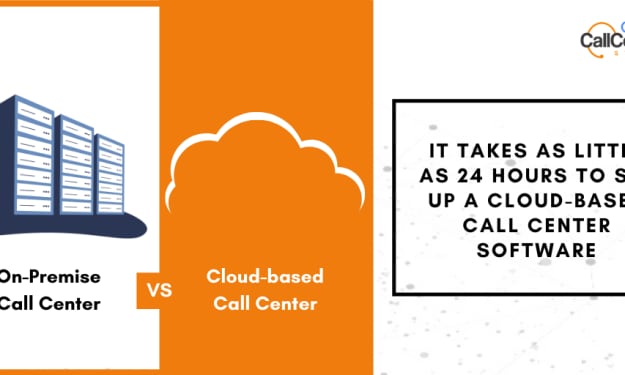Avoiding Employee Burnout Is An Asset To Your Organization
Employee burnout is a challenge businesses are increasingly experiencing in the last eight months as companies transition from the office work environment to embrace the remote work culture.

Employee burnout is a challenge businesses are increasingly experiencing in the last eight months as companies transition from the office work environment to embrace the remote work culture.
While employees crush daily tasks, ensuring that businesses deliver optimum customer support to consumers, they could be at the point of a breakdown or steadily growing irritation for their jobs.
It isn’t a useful feature for companies to satisfy customers at the expense of employees’ convenience and well-being.
How are companies getting to a point where call center agents feel too tired and disconnected from work to be productive?
Often, Supervisors think that work-from-home culture causes employees to be lazy and less productive. That isn’t the case.
Research by Harvard Business Review found that productivity has increased as a result of remote work. Findings highlighted that workers did more voluntarily while working from home against bosses, asking them to get things done.
In the first published research in 2013, with a follow-up in June 2020, the findings suggest that remote work is getting the best out of employees.
Below were the findings:
- Due to the lockdown, employees focus on work that matters and spend 9% more time interacting with customers and external partners. Time spent on large meetings is down by 12%.
- Employees are doing 50% more activities through personal choice — because these activities as seen as necessary — and half as many because someone else asked.
- During the lockdown, work has become more worthwhile as employees rate tasks valuable to employers and themselves. The number of tasks rated as tiresome drops from 27% to 12%, and the number of tasks that would previously be readily offloaded to others drop from 41% to 27%.
If employees are getting much done voluntarily, why then are they feeling burnout? Explaining employee burnout will give us a better understanding.
What is employee burnout?
It is a state of mind where your contact center agents are physically and emotionally exhausted due to excessive workload and stress.
Agents get into a state where they lose their identity and passion for their jobs. Everything becomes a forced routine without necessarily putting in any form of tact or personalization to job delivery.

Those who experience burnout find themselves easily irritated by simple work-related tasks. They have challenges getting started at work every day, lack the drive to be productive, lose concentration, have bad sleeping habits, and regularly experience exhaustion.
Work-life imbalance, unrealistic expectations from top-line managers, unclear job expectations, and micromanagement can lead to employee burnout.
Other causes include lack of employee recognition, huge penalties for mistakes, toxic/unemotional managers, lack of personal connection with employees, and isolation.
Covid-19 and the increase in employee burnout
Eagle Hill Consulting reports that employee burnout increased between April 2020 and August 2020, from 45% to 58%.
From the report;
- 47% attribute burnout to their workload.
- 39% say it's balancing work and their personal life.
- 37% indicate it stems from a lack of communication, feedback, and support.
- 30% point to time pressures and a lack of clarity around expectations.
- More than a quarter (28%) say it's performance expectations.
When agents start experiencing these, your business risks a loss in morale, decreased productivity, mediocre customer service, increased staff turnover, and a dwindling customer base.
How can contact centers deal with employee burnout?
Avoiding burnout is a significant step towards sustaining your business operations and controlling damages that a distraught agent could cause.
To effectively manage the situation, it is necessary to understand the reasons your agents are experiencing burnout.
Communicate with them to know their pain points and find agreeable solutions that won't seem forced. Below are tips that will help you avoid employee burnout
Educate your employees to be aware of employee burnout
It is necessary to ensure that everyone is aware of burnout - what it is and what your company is doing to address it.
This education shouldn’t only be in words or written communique but also modeled, reinforced, and incorporated into the work culture.
Encourage employees to speak up and act on their concerns.
When your call center agents feel like they have no input towards your operations, there is a disconnect and indifference feeling.
Don’t just encourage your employees to speak for the sake of it. Listen and act on their concerns. They should feel like the part-owners of your business. This increases their morale to contribute positively and apply intuition to work rather than wait for instructions at all times.
Improve communication
Communicate more with your team. The global status quo ignited by the pandemic makes it necessary to stay connected with your agents and make yourself accessible.
When support is readily available, resolving challenges is quick and efficient. It is crucial to create an atmosphere for collaboration and open feedback.
You could also host virtual hangouts to discuss random topics that aren’t work-related. This builds a team spirit and ignites better understanding amongst workers.
Limit Overtime to avoid employee burnout
Your contact center agents may be inclined to work overtime due to associated extra-pay or perks. Be aware that working excessive hours is a trusted recipe for burnout.
Get your agents to sign in and out within the usual working hours. Engaging them to work overtime consistently will only lead to decreased productivity, resulting in a below-par customer experience.
While agents can’t necessarily finish tasks, it is vital to decrease their workload either by rotation or hiring ad-hoc agents.
Watch out for overachievers.
Supervisors should learn to pair their top-performing agents with colleagues close to their level of competence to prevent them from over-compensating for others' shortcomings.
This allows a more balanced sharing of workload, pressures, and the opportunity to learn and grow together.
When your top performer(s) have to cover up for the lack of less performing agents consistently, they can be overworked and drained, leading to lowered levels of enthusiasm and customer service delivery.
That email doesn’t need an urgent reply.
Don’t mandate your employees to always reply to emails that don't require urgency.
Often, Supervisors shoot emails after closing hours or sometimes at midnight and expect replies immediately. This conditions the mind of employees to never switch-off work even when it is beyond working hours.
The effect of this is a challenge in maintaining a work-life balance, which leads to burnout.
If that email isn’t a matter of importance, it will be best to schedule it to be sent the next day at earlier office hours. This way, your employees can enjoy their off-work hours, having time for themselves and family.
Recognize and Acknowledge your call center agents’ efforts
Be appreciative of call center agents’ performances and offer rewards where necessary. Set a series of short and long-term goals associated with tips.
Recognition could come in the form of rewarding agents with the most successful customer resolutions, the number of First-Time Resolutions, or perhaps the etiquette employed in dealing with a demanding customer.
Find reasons to build up your agents’ confidence and be honest by telling them the negatives you observe constructively.
When agents have burnout, they often forget about the positives and only focus on the negatives. Try to appreciate them for the excellent work overtime while pointing out areas that need improvement.
Clarify expectations and goals for your contact center agents
When your agents are not clear about their duties and have no knowledge of personal goals, they take on multiple tasks that don’t necessarily translate to productivity.
It is crucial to give clarity on the tasks, expectations, and goals of employees.
For example, if the month’s goal is to increase the first-time resolution, you should communicate in simple and straightforward terms to the team.
A vague task or goal sometimes occurs when there are multiple supervisors’ instructions, thereby throwing agents into a clueless state.
Having precise roles and targets helps them manage their time to achieve set goals without wasting time, energy, and resources on less essential metrics.
Be transparent
It's a bad taste when employees feel like employers keep certain information cornering the business away from them.
While these feelings may sometimes be inaccurate and reaching, it is a recipe for disconnection from work and a gradual build-up towards job irritation and low morale.
Ensure that employees have sufficient knowledge of activities and the decisions of the company.
Monitor the productivity of your contact center agents
Employee burnout doesn’t just occur overnight; it is a gradual process that starts with little lapses here and there.
Being alert to your agents’ performances helps you notice when burnout starts creeping-in on your organization.
Productivity tracking tools such as Clockify or Microsoft Workplace Analytics help get insights about an employee’s productivity level. If the employee is putting in too many hours or performing below expectations, those could be indications to reach out.
Mandate rest to avoid employee burnout.
The pandemic’s disruption has resulted in people working 3 hours longer than the usual work hours.
Mandate that your agents take some time off work to have family and self-time. It doesn’t necessarily have to be their leave period.
Incentivize your agents with vacation time to refresh and recharge their productivity and creativity.
What next?
It is crucial to understand your employees and monitor their productivity levels. Beyond the never-ending tasks, show that you care about their everyday life.
While you can’t solve all of their problems, lend a listening ear. Be empathetic and offer general advice when appropriate.
Helping your agents avoid burnout should be your business’s priority.





Comments
There are no comments for this story
Be the first to respond and start the conversation.